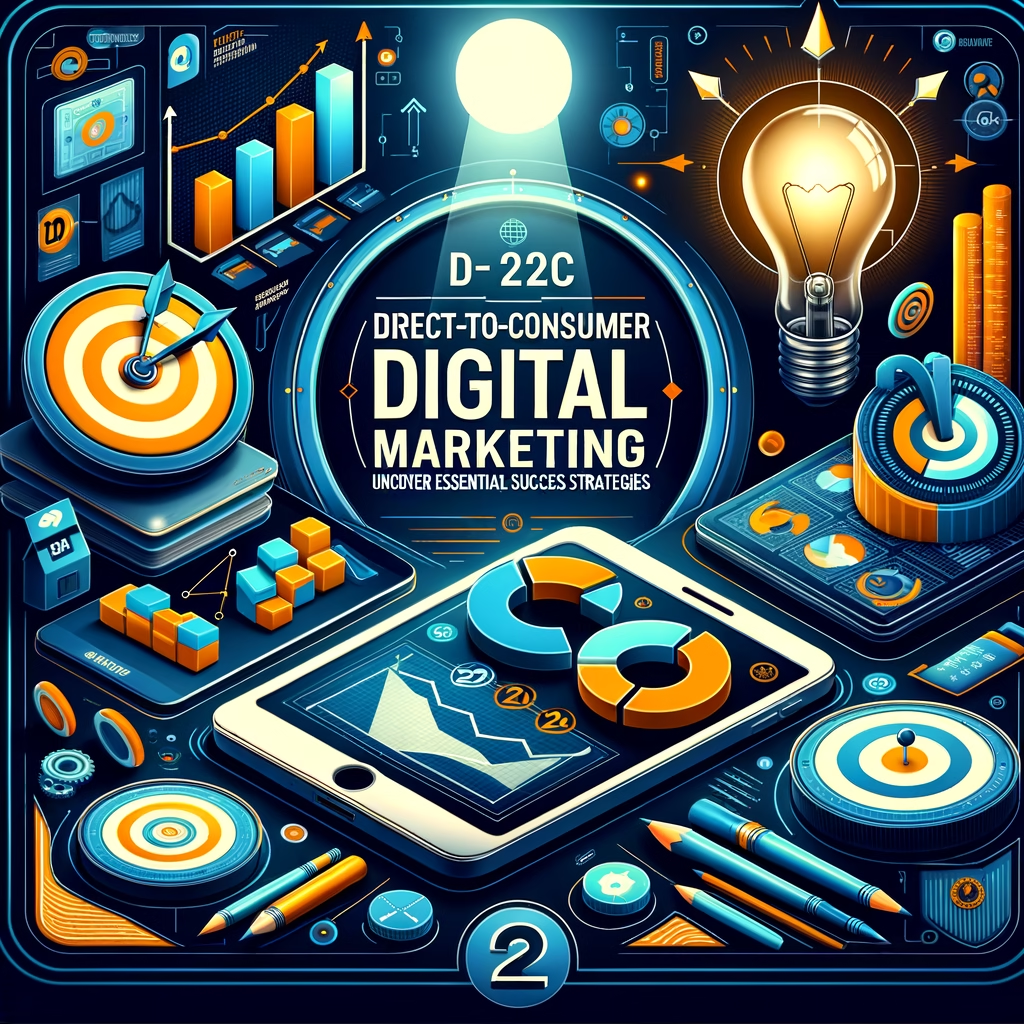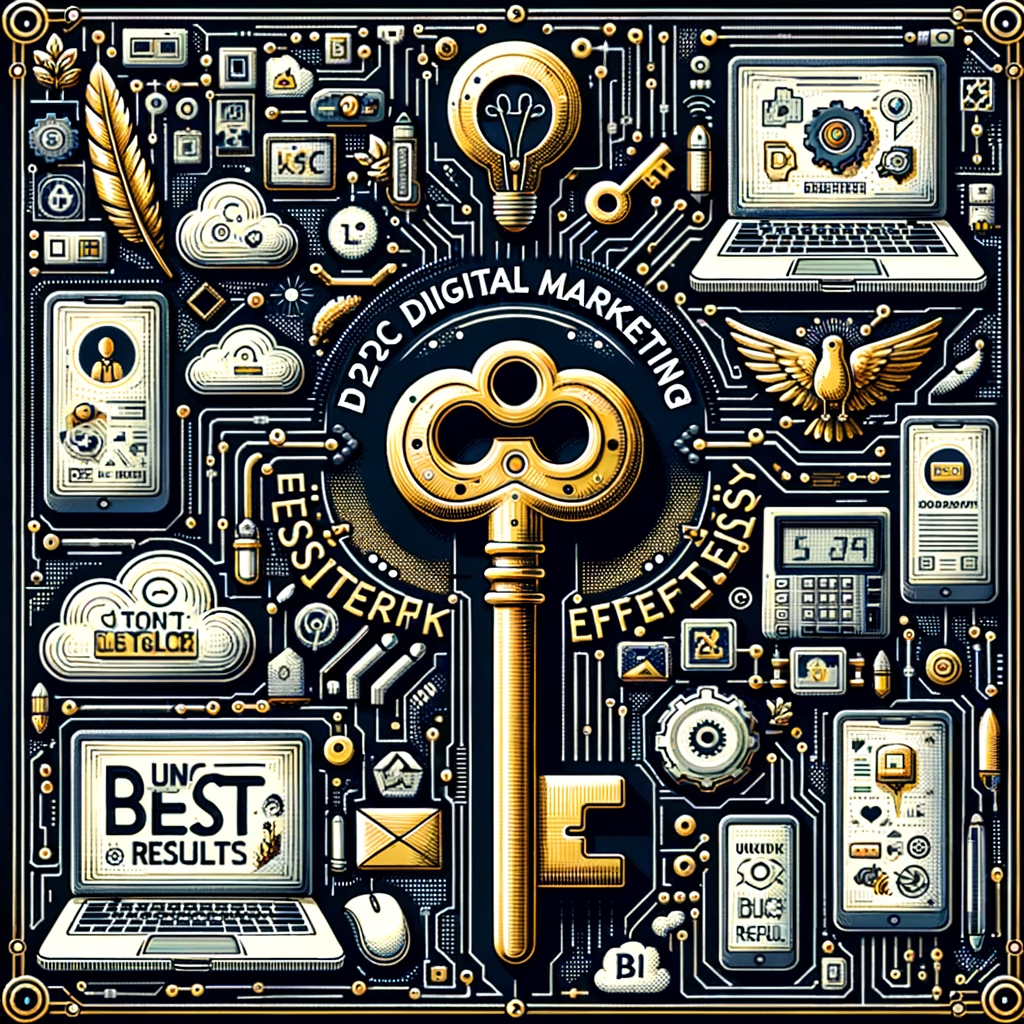D2C Digital Marketing: Exploring Innovative Strategies for Effortless Success
D2C digital marketing has revolutionized how brands interact with their customers. By embracing direct-to-consumer (D2C) strategies, brands can create more personalized and engaging experiences. This article explores innovative strategies that empower D2C brands to achieve success effortlessly in today’s competitive digital marketplace.
Understanding D2C Digital Marketing
Before diving into specific strategies, it’s crucial to understand the foundation of D2C digital marketing. Unlike traditional retail models, D2C allows brands to sell directly to consumers without intermediaries. This direct connection enhances control over customer interactions, branding, and data collection.
The Power of Personalized Experience
A dominant strategy in D2C digital marketing is personalization. Consumers today expect tailor-made experiences, and leveraging data-driven insights allows brands to deliver just that.
1. Segmentation and Targeting
– Using consumer data, segmenting your audience allows for more targeted marketing efforts. This ensures that each segment receives messaging that resonates, increasing engagement and conversion rates.
2. Personalized Content
– Craft content that speaks directly to individual preferences and behaviors. Use AI and machine learning to analyze data and create dynamic, personalized content for emails, social media, and other digital platforms.
3. Customized Shopping Experiences
– Utilize recommendation engines to offer product suggestions based on past behavior. This not only enhances the shopping experience but also increases average order values.
Harnessing Social Media Effectively
Social media platforms are vital for D2C brands, offering a direct line to consumers. Platforms like Instagram, TikTok, and Facebook provide the perfect arenas for innovative engagement.
1. Influencer Partnerships
– Partnering with influencers can extend a brand’s reach and credibility. Micro-influencers, in particular, often have a more engaged and loyal audience, leading to more authentic brand promotions.
2. Interactive Content
– Use polls, quizzes, and live sessions to engage with your audience actively. Interactive content not only increases engagement but also gathers valuable data about consumer preferences.
3. User-Generated Content (UGC)
– Encourage customers to share their experiences with your products on social media. UGC serves as powerful, authentic testimonials that can significantly influence potential buyers.
Optimizing the Customer Journey
Creating a seamless customer journey from the first interaction to purchase and beyond is crucial in D2C marketing.
1. Intuitive Website Design
– Ensure that your website is user-friendly and mobile-optimized. A smooth navigation experience is essential to prevent cart abandonment and increase conversion rates.
2. Streamlined Checkout Process
– Simplify the checkout process with options like guest checkout, multiple payment methods, and automatic address filling. This reduces friction and can lead to an increase in completed transactions.
3. Post-Purchase Engagement
– Maintain communication with consumers after the sale. Use follow-up emails, feedback surveys, and exclusive offers to nurture customer relationships and encourage repeat purchases.
Leveraging Data Analytics
Data is the backbone of D2C digital marketing strategies. By effectively collecting and analyzing data, brands can make informed decisions that drive growth.
1. Predictive Analytics
– Utilize predictive analytics to anticipate consumer needs and behaviors. This can assist in inventory management and personalized marketing efforts, ensuring that consumer demands are met precisely.
2. Real-Time Data Monitoring
– Stay informed about consumer interactions in real-time. This allows for quick adjustments in marketing strategies based on current trends and consumer feedback.
3. Performance Metrics
– Regularly track key performance metrics such as customer acquisition cost and lifetime value. Understanding these metrics helps in optimizing marketing spend and improving overall ROI.
Creating Authentic Brand Experiences
Building an authentic and relatable brand is an effective strategy for engaging today’s consumers.
1. Consistent Brand Storytelling
– Keep your brand messaging consistent across all platforms. A strong narrative that aligns with consumer values fosters trust and loyalty.
2. Transparent Practices
– Consumers appreciate transparency in business practices. Share insights into your sourcing, production, and social responsibility efforts to build a genuine connection with your audience.
3. Community Building
– Foster a sense of community among your consumers. Encourage discussions, community forums, and exclusive member benefits to create a loyal brand following.
Innovative Platforms for D2C Success
Exploring new and emerging platforms can offer D2C brands unique opportunities for growth and engagement.
1. Shoppable Videos
– Integrate shoppable videos on platforms like Instagram and TikTok. These short, engaging videos allow consumers to purchase products directly, streamlining the path from interest to conversion.
2. Virtual and Augmented Reality
– Incorporate VR and AR technology to provide virtual try-ons or immersive brand experiences. These advanced technologies not only enhance consumer interaction but also decrease return rates by allowing a better understanding of products.
3. Subscription Services
– Offer subscription-based models for products. This provides a consistent revenue stream and builds long-term customer relationships while offering convenience to consumers.
Conclusion
In the realm of D2C digital marketing, innovative strategies are vital for effortless success. By focusing on personalization, leveraging social media and emerging platforms, optimizing the customer journey, and building authentic brand experiences, D2C brands can unlock immense potential. With the right strategies in place, brands can not only meet but exceed consumer expectations, fostering growth and loyalty in the ever-evolving digital landscape.




